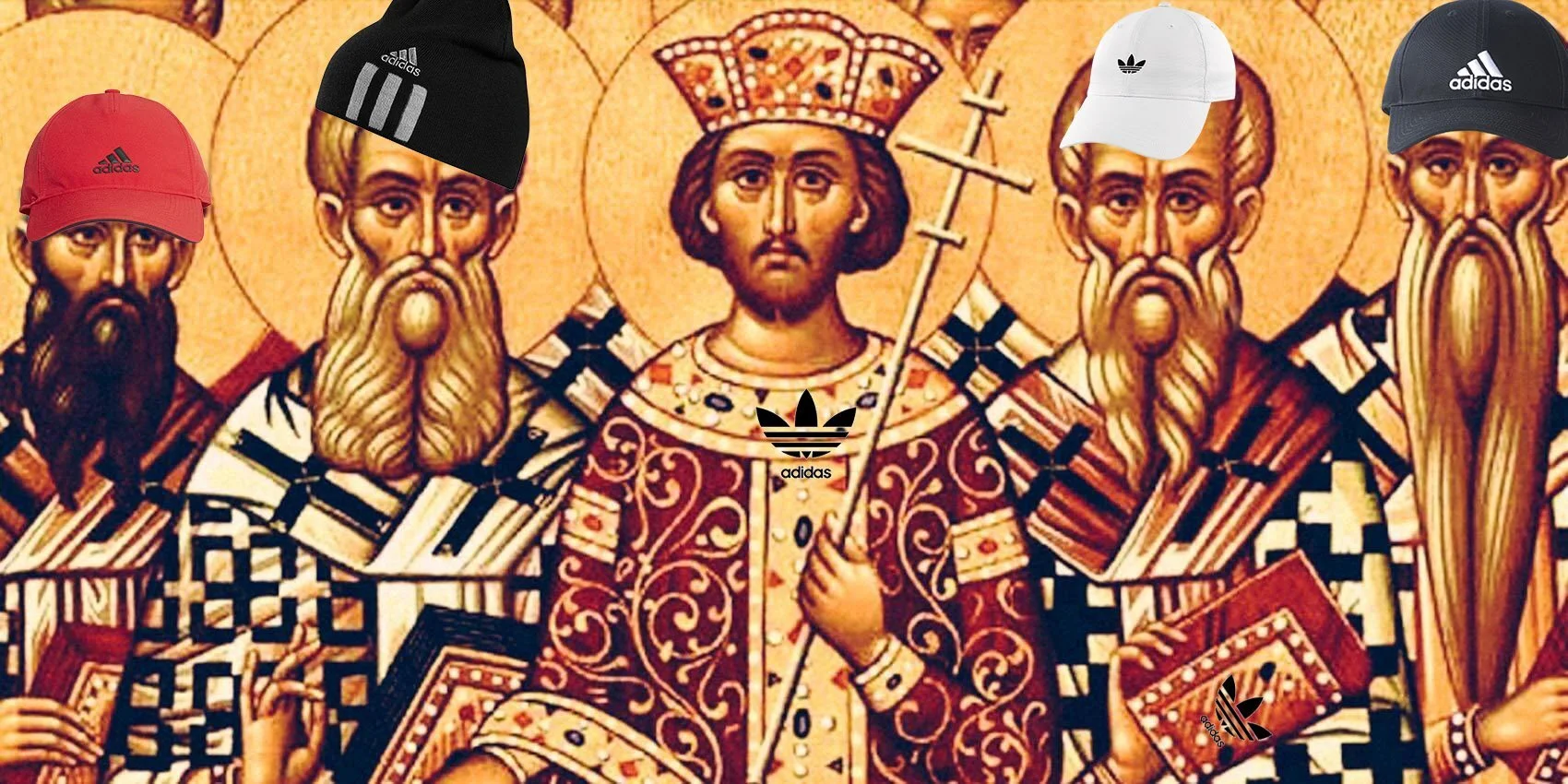Why Do Slavs Wear Adidas
There's perhaps nothing more Slavic than wearing an Adidas tracksuit, as it's the perfect look for pretty much any and all occasions - basketball court, clubs, weddings, funerals and of course pandemic quarantines. So if your goal is to date Slavic women, blend in with your new Slavic friends or just look cool, comfortable and confident, step one is loading up on Adidas gear, although you might want to mix in a few items from Kappa or Umbro just to add a bit of variety. But the question remains, how did Adidas become the de rigueur attire for Slavs and especially Slavic men? There are four competing theories for this, all of which deserve some further investigation.
The Unification Theory
The first, and most obvious, theory is that Slavs are inherently drawn to Adidas because of the fact that its trademark three stripes subconsciously represents the Holy Trinity, which is one element of religion that manages to bridge the historic divide between Orthodox and Catholic churches, and thus unite all Slavs in one community, as they should be. This is a very strong theory, which is why it's accepted by most mainstream historians, theologians and anthropologists who specialise in Slavic culture.
If anything can repair the East-West Schism of 1054, it's Adidas
The Wood Rat Theory
Next up is another very convincing option, which is especially popular amongst scholars in Asia and the global south. It's also very elegant, and our own personal favourite. As everyone knows, Adidas(1) was originally founded in July 1924. The Chinese Zodiac sign for those born that month was the 'Wood Rat'. And the very authoritative looking website fengshuiweb.co.uk describes Wood Rats thusly:
"The Wood Rat is well known for their very friendly and outgoing personality which will often attract many people to the Wood Rat and is usually very popular within their home and work life with their colleagues, friends and friends [sic]. Wood Rats are able to make new friends and impress people very easily. Wood Rats have a swift, lively brain and like to turn their hand to anything they think may be useful and will often see good results from anything they try their hand at."
Yes, that's right, it's the absolute textbook description of your average Slav, and simply too spot on to be a coincidence, which is why the hair on your arms is standing up right now and you've got the same look on your face as Neo did when he learned (fake) Kung Fu via USB in the first and only good Matrix film. Whoa, indeed dear reader, whoa indeed.
Wood Rats wearing Adidas may very well be headlining Serbia's Exit Festival in 2021
The Battle of Magdala Theory
In much the same way that contemporary quantum physics' so-called String Theory has had to complicate things to an insane degree by positing a mind-boggling number of dimensions(2) in order to coherently explain the inherently inexplicable, contemporary Slav theorists have also had to reach way down to the bottom of the intellectual barrel to come up with the relatively recently developed Battle of Magdala Theory. It begins from the same starting point as the Wood Rat theory, namely the birth of Adidas in July 1924, only instead of turning towards Asia for inspiration, it casts its gaze southward, towards the mysterious continent of Africa.
First we need to journey back a few decades, to the year 1868 and the famed Battle of Magdala, which ended the British Expedition to Abyssinia with a decisive victory for the away squad. The short version of this epic tale is that the Emperor of Ethiopia at the time, Tewodros II, was what historians often refer to as a 'real badass'. However, he was losing grip on his empire for a variety of reasons, and in a last ditch effort to keep things together, he sent out letters to a who's who of 19th century European powers (Russia, France, Austro-Hungary, Great Britain and good old Prussia).
Ethiopian Emperor Tewodros II: A real badass and an honorary Slav
After getting the imperial cold shoulder from all of them (except perhaps France) he decided to kidnap some British missionaries in a final attempt to get Queen Victoria's attention. And get her attention he did, but not quite in the way he'd hoped, as instead of sending help she sent the eponymous British Expedition, which spent three months trekking to Magdala and its mountaintop fortress, where Tewodros was holed up. After heavy bombardment, the emperor took the only way out he could find and killed himself with a duelling pistol that had been given to him by - wait for it - Queen Victoria. Nice little Hollywood style plot twist there at the end, right? Can't make this stuff up!
Now at this point you might very well be asking yourself what on Earth all of this historical intrigue and colonial shenanigans has to do with Slavs wearing Adidas in the 21st century. Well, as any calculator worth its salt will tell you, 7 (ie July) multiplied by 1924 equals 13,468, which of course leads us to yet another hair-raising revelation of coincidence, as it was none other than 13 April 1868 when the Battle of Magdala came to its suicidal conclusion. Let's be honest, Slavs love a good tragedy, especially if it's wrapped up in an unbelievable tale of empire and war - that's pretty much their entire history after all. And this story has got it all!
The Comfortable as F*ck Theory
And this brings us to the final theory as to why Slavs like to wear Adidas, which contends that they look cool and are comfortable as f*ck. Can't argue with that. A theory as simple as it is convincing.
Comfortable as f*ck, even when you're squatting on logs near Ohrid Lake
Conclusions?
So which of these explanations is the one true one? That's really up to you to decide, we can't tell you how to think. All of them sound incredibly plausible to us, which is why we wrote this article However, if you have any competing theories or alternative interpretations, feel free to let us know in the comments below.
(1) When it was established in 1924, Adidas was originally known as Dassler, after its founder Adolf Dassler (or Adi to friends). Due to some family disputes, business problems and Nazi-related issues, the Adidas brandname was only officially (re)born in 1949.
(2) In bosonic string theory, spacetime is 26-dimensional, while in superstring theory it is 10-dimensional, and in M-theory it is 11-dimensional.
This article originally appeared on the In Your Pocket Blog a lifetime ago in spring of 2020.



